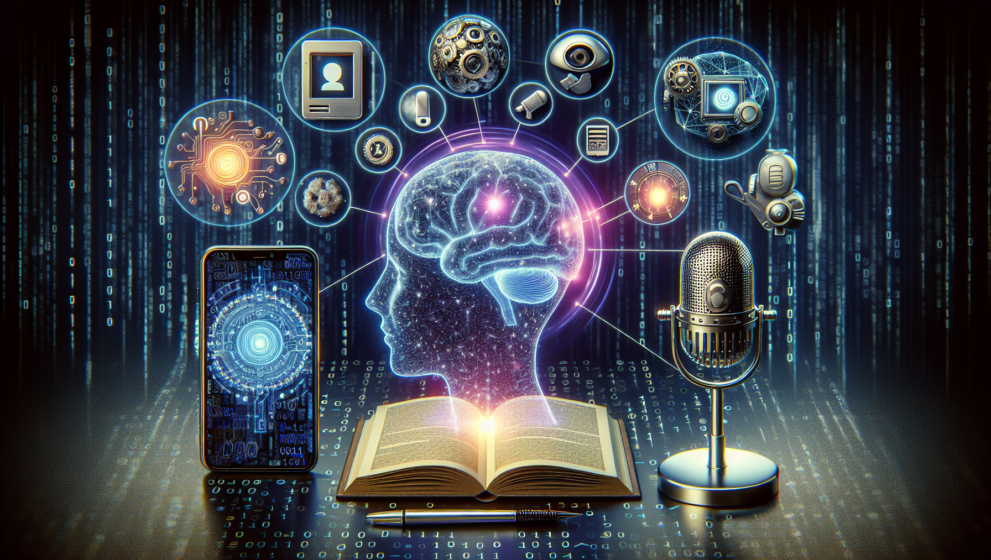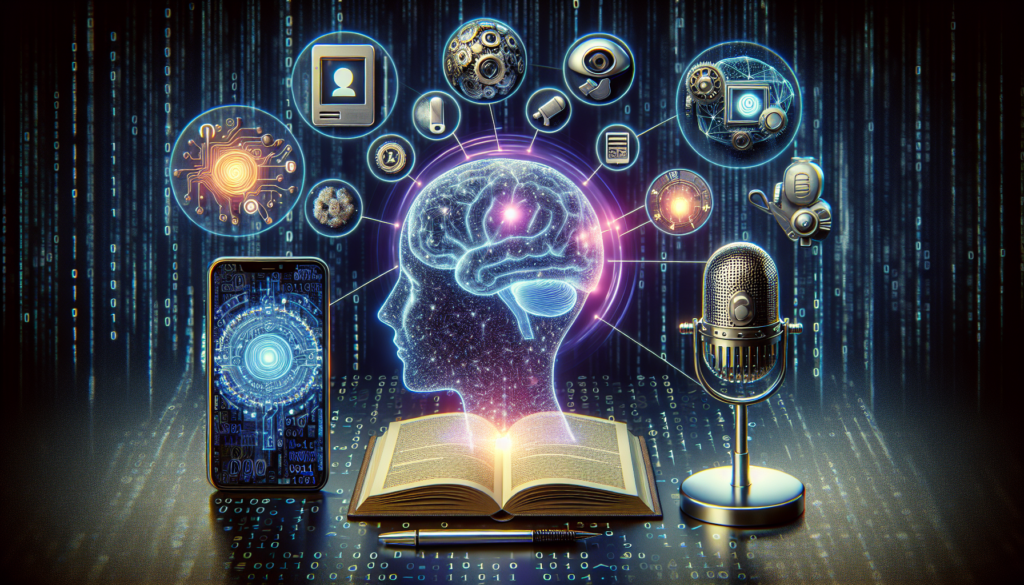The Impact of AI on Communication Technology

Imagine a future where technology seamlessly integrates with our everyday communication, making our lives easier and more efficient. That future is closer than you think, thanks to the rapid advancements in artificial intelligence. In this article, we will explore the impact of AI on communication technology, particularly focusing on the role of virtual assistant chatbots. So grab a cup of coffee, sit back, and get ready to discover how AI is revolutionizing the way we connect and interact with the world around us. From enhancing customer service to boosting productivity, the possibilities are endless. Let’s dive in!
The Impact of AI on Communication Technology
AI, or Artificial Intelligence, has revolutionized communication technology in numerous ways. From virtual assistants to enhanced language processing, AI has become an indispensable tool for businesses and individuals alike. In this article, we will explore the various roles AI plays in communication technology and how it has transformed the way we interact and communicate.
The Role of AI in Virtual Assistants
Virtual assistants, such as Siri, Cortana, and Alexa, have become household names thanks to the advancements in AI technology. These intelligent chatbots have the ability to understand and respond to human language, making tasks such as setting reminders, answering questions, and even ordering products online much easier.
AI-powered virtual assistants utilize natural language processing and machine learning algorithms to interpret user queries and provide accurate and relevant responses. They can adapt and learn from user interactions, continuously improving their ability to understand and fulfill user requests. This has made virtual assistants an integral part of our daily lives, streamlining tasks and enhancing efficiency.
Enhanced Language Processing and Understanding
Language processing is a crucial component of communication technology, and AI has greatly enhanced this aspect. AI algorithms can now understand and interpret human language with remarkable accuracy, enabling more effective and meaningful interactions.
For instance, AI-powered language processing systems can identify sentiment in text, allowing businesses to gauge customer satisfaction and respond accordingly. Additionally, with the help of AI, language translation has become more accurate and accessible, breaking down language barriers and enabling global communication on a deeper level.
The Advancement of Natural Language Generation
Natural Language Generation (NLG) is another area where AI has made significant strides. NLG involves the creation of human-like text, allowing machines to generate coherent and contextually relevant content.
With the help of AI, NLG algorithms can now write articles, reports, and summaries that are indistinguishable from those written by humans. This not only saves time and resources but also ensures consistent and high-quality content production. NLG has applications in various fields, including customer support, content creation, and data analysis.
Improved Speech Recognition Technology
Speech recognition technology has come a long way, thanks to AI advancements. Voice assistants and speech-to-text applications now boast impressive accuracy and speed, enabling hands-free communication and transcription services.
AI algorithms analyze spoken words, decipher accents, and identify words in real-time, making voice-controlled devices and applications more reliable and accessible. This has opened up new possibilities for people with disabilities, allowing them to communicate more effortlessly and participate fully in various aspects of life.
Enhanced Machine Learning Algorithms
Machine learning is at the core of AI-driven communication technology. This subset of AI focuses on developing algorithms and models that enable machines to improve their performance through experience and data analysis.
In the context of communication technology, machine learning algorithms allow systems to adapt and learn from user interactions, delivering more accurate and personalized experiences. Whether it’s suggesting relevant articles or products based on user preferences or predicting customer behavior, AI-powered machine learning algorithms have transformed the way businesses communicate with their customers.
The Rise of Chatbots in Communication
One of the most noticeable impacts of AI on communication technology is the rise of chatbots. These intelligent systems are designed to interact with users in a conversational manner, providing information, answering questions, and even processing transactions.
Chatbots leverage AI technology to understand natural language and respond appropriately, imitating human conversation as closely as possible. They are particularly useful in customer support, where they can handle repetitive inquiries, provide instant responses, and escalate complex issues to human agents when necessary. This not only improves efficiency and reduces customer wait times but also frees up human resources for more complex tasks.

Increase in Personalized Customer Support
AI has also revolutionized customer support by enabling personalized experiences at scale. With the help of AI algorithms, businesses can analyze customer data and preferences to deliver tailored recommendations, offers, and support.
By leveraging AI-powered communication technology, businesses can create customer profiles, understand their preferences, and anticipate their needs. This allows for more effective marketing campaigns, personalized product recommendations, and proactive support that caters to individual customer requirements.
Seamless Integration of AI in Communication Platforms
AI seamlessly integrates into various communication platforms, enhancing their functionalities and improving user experiences. From email clients to messaging apps, AI algorithms can analyze communication patterns, understand user priorities, and automate tasks to streamline communication workflows.
For instance, AI-powered email clients can categorize and prioritize incoming emails based on user preferences, saving time and reducing email overload. Similarly, messaging apps utilize AI to interpret emojis, suggest replies, and even generate smart replies based on context.

The Impact of AI on Email Communication
Email communication has undergone a significant transformation with the integration of AI. AI algorithms can now detect and filter spam emails with impressive accuracy, reducing the risk of falling victim to phishing attacks and improving email security.
Moreover, AI-powered email clients can understand the content and context of emails, providing relevant suggestions for attachments, scheduling meetings, and drafting responses. This not only saves time but also enhances the overall email experience, making communication more efficient and effective.
The Future of AI in Communication Technology
As AI continues to advance, the future of communication technology looks even more promising. With ongoing developments in natural language processing, machine learning, and voice recognition, we can expect even more seamless and personalized interactions.
Virtual assistants will become even smarter and capable of handling complex tasks, offering assistance across multiple platforms and devices. Chatbots will become more sophisticated, capable of natural conversations and context-aware interactions.
Additionally, with the integration of AI in communication platforms, we can expect better automation, predictive analysis, and enhanced support. Businesses will be able to utilize AI to deliver personalized experiences to customers, further improving customer satisfaction and loyalty.
In conclusion, AI has had a profound impact on communication technology. From virtual assistants to enhanced language processing, AI has revolutionized the way we interact and communicate. As technology continues to advance, we can expect AI to play an even bigger role in shaping the future of communication.


